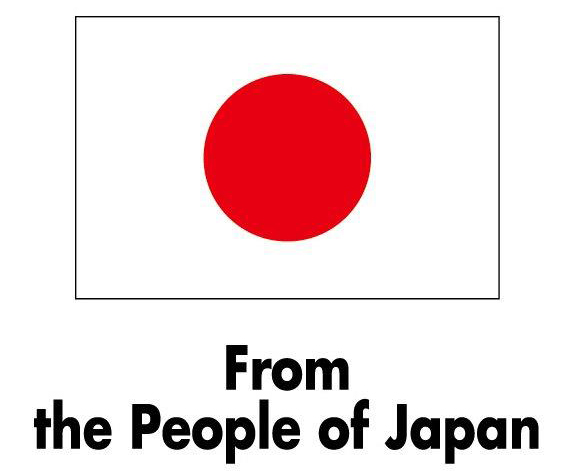August 29, 2022
Donor Spotlight: Japanese Government
IAVI recognizes the government of Japan’s continued commitment to HIV vaccine research and applauds their leadership in the fight against infectious diseases.

Most recently the government of Japan announced its commitment to contribute US$10.5 million to IAVI’s VSV-HIV vaccine development program. This funding will focus on studies designed to deliver a potential HIV vaccine to the mucosa tissue intranasally using IAVI’s vesicular stomatitis virus (VSV) technology, and on promoting collaboration and coordination among global health product development stakeholders. Over the next five years, through these studies, IAVI and its partners aim to show that one or more VSV-HIV vaccines effectively induce immunity resident in the mucosal tissues in small animals and nonhuman primates and has the potential to be advanced for development as a clinical trial candidate in humans. Additionally, the work aims to fully develop a safe technology that can be used to deliver a greater diversity of immunogens intranasally with the potential for use in vaccination programs for other infectious diseases. The program will also promote collaboration and coordination among global partners, such as Global Health Innovative Technology (GHIT) Fund, Coalition for Epidemic Preparedness Innovations (CEPI), and others, to share knowledge and resources, accelerate and expand global research and development efforts, and maximize the impact of Japan’s investment. The announcement follows years of leadership from the government of Japan, which has provided significant investment in IAVI’s VSV-HIV vaccine research.
History of Japan’s support to IAVI
IAVI has been engaging with policymakers, scientists, and HIV activists in Japan since 2001 to mobilize scientific, political, and financial resources to support HIV vaccine development. In 2010, the government of Japan, in partnership with The World Bank, supported the early development of IAVI’s VSV-HIV vaccine candidate. That candidate, based on the Japan-originated Sendai virus vector technology, was tested in clinical trial in Rwanda, Kenya, and the U.K. The novel vaccine trials resulted in building regulatory and clinical research capacity in IAVI’s partners in Africa.
After the Sendai program concluded in 2015, Japan continued to support IAVI’s VSV-HIV vaccine work informed by experience and learning from their similar Sendai program. Japan’s support of the IAVI VSV-HIV vaccine program has enabled this platform technology to be applied to a range of pressing global health threats, including COVID-19.
In 2020 the government of Japan contributed US$10 million to IAVI’s COVID-19 vaccine development program. The program is advancing an intranasally administered novel COVID-19 vaccine using the VSV platform to clinical trials in humans.
Japan’s leadership in global health
Japan’s investment in HIV vaccine research and development is just one example of their longstanding leadership in global health that began at the 2000 G8 Summit when Japan put infectious diseases on the global agenda as the host government. Japan is the fifth largest public donor to The Global Fund and is one of the founding and leading donors of CEPI. Japan has been steadily increasing its support to Gavi, the Vaccine Alliance, and most recently co-chaired the Gavi COVAX AMC Summit in 2021. In 2018, Japan officially served as one of the co-chairs of the 2018 UN High-Level Meeting on Tuberculosis.
Japan has been a steadfast champion for Universal Health Coverage (UHC) and led the global advocacy that culminated in the United Nations High Level meeting on UHC in 2019. Achieving UHC remains one of the priority goals of Japan’s efforts in global health.
At the occasion of the fourth Tokyo International Conference on African Development in 2008, the government of Japan awarded the first Hideyo Noguchi Africa Prize, named after a prominent Japanese bacteriologist who perished in Ghana while researching yellow fever, to honor the outstanding achievements in the fields of medical research and medical services, thus contributing to the health and welfare of people living in Africa and the world. The recipients of the second Noguchi prize in 2013 were former members of the IAVI Board of Directors Dr. Peter Piot and Dr. Alex Coutinho. Dr. Coutinho was serving as IAVI Board Chair when he received the prestigious award in Yokohama.
IAVI is grateful for the longstanding support of the government of Japan and proud to continue to work together to develop health technologies to combat HIV/AIDS, COVID-19, and other emerging infectious diseases, and improve the health of communities most impacted by infectious diseases with the goal of achieving UHC.
Learn more about IAVI’s generous funders.